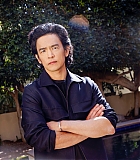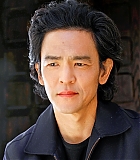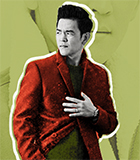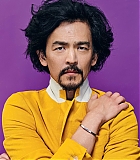
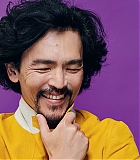
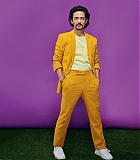
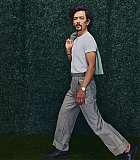
A telling snapshot from the young life of John Cho. He is at college, majoring in English Literature when a drama company commandeers the campus theatre to mount a production of Woman Warrior, based on the best-selling memoir by Maxine Hong Kingston. There is, however, a caveat. In return for the use of the theatre the production company is required to cast a few college students. Enter Cho, who scores a small role. The die is cast.
“It was the first time I met professional Asian actors,” Cho recalls. “Frankly, I didn’t know they existed. I guess I’d seen some Asians on television, but, in my head, they were just people recruited off the street or something. I didn’t know you could work all year, and do that.”
Cho, now 50, and I are sitting in a nondescript room in a mid-town hotel in New York, where all morning he has been answering questions from groups of writers about his new film, Don’t Make Me Go, a small indie with a lot of heart and an unexpected twist in the tail. Cho is tired, having arrived from LA the night before. We sit in chairs opposite each other, while a publicist lurks in the gloom behind me, but directly in Cho’s sightline.
But it turns out that even when John Cho is tired he thrums with a bright, nervous energy. And once in his stride he can take you by surprise, kicking up a dust storm of acute observations. Where others like to simplify, he prefers to complicate, like someone rescrambling the squares of a Rubik’s cube, determined to figure out its logic. He navigates questions with the same care and scrutiny that he’s applied to his work, avoiding the industry’s tendency to pigeonhole by moving nimbly between genres, from comedy to artsy indie to blockbuster, and back again. For someone who came to fame by playing “MILF Guy #2” in American Pie, before his break-out in the gross-out stoner comedy Harold & Kumar Go to White Castle, it’s an impressive evolution.
Then again, Harold & Kumar was not your typical gross-out stoner comedy, deploying a classic American narrative – the road trip – to subvert and obliterate racial stereotypes. The timing, three years into the so-called war on terror, coincided with a growing backlash to the war in Iraq. People were receptive to the movie’s witty but unambiguous critique of what we now call white privilege.
“Its posture towards race is to laugh at it,” says Cho. “Instead of elevating it, it took the stereotypes and turned the sock inside out. Looking back, I think we were ahead of our time a little bit.”
Turning the sock inside out is something that Cho spends a lot of time thinking about. “In America, everyone sees your race first, but that’s not the way you feel,” he says. “I never feel Asian, necessarily – it’s the world that makes me think about it.” Early in the Covid pandemic, Cho wrote an opinion piece for the LA Times in which he described having to warn his parents to be careful at a moment when Asian Americans were subject to a wave of attacks. “The pandemic is reminding us that our belonging is conditional,” Cho wrote. “One moment we are Americans, the next we are all foreigners, who ‘brought’ the virus here.” Although it won him plaudits, he’s ambivalent about being a spokesperson for Asian Americans. “I don’t think I’m informed enough as an actor, and I don’t know the ins and outs of policy, but when something strikes me close to the bone I’ll do it for myself,” he says. “I don’t consider what I’m doing as some kind of clarion call, it’s a self-serving expression.” [More at Source]
